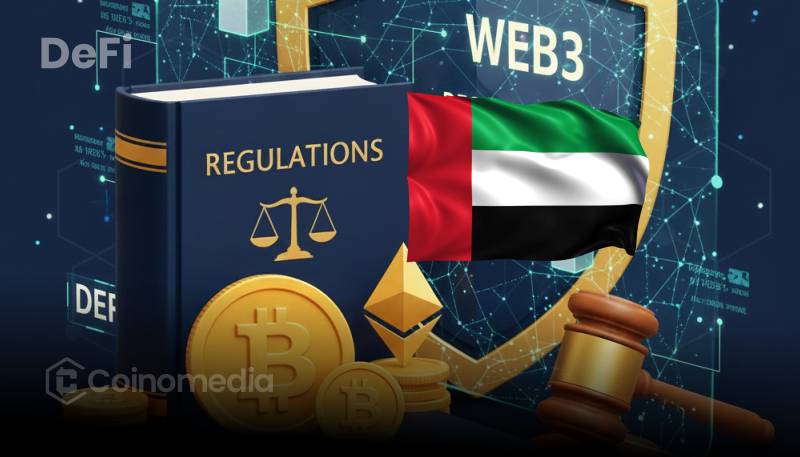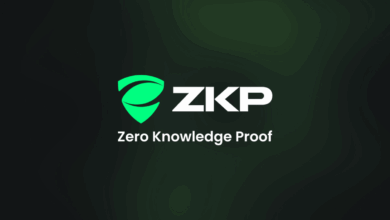UAE Regulates DeFi and Web3 Under New 2025 Law
UAE introduces Federal Decree No. 6 of 2025, requiring DeFi and Web3 projects to be licensed by September 2026.

- UAE’s new law brings DeFi and Web3 under central bank control
- Stablecoins, DEXs, and bridges must be licensed by Sept 2026
- The move aims to ensure compliance and protect users
UAE Moves to Regulate DeFi and Web3 in 2025
The United Arab Emirates (UAE) has taken a major step toward regulating the digital asset space. On November 25, the country officially enacted Federal Decree No. 6 of 2025, bringing DeFi platforms, Web3 protocols, stablecoins, decentralized exchanges (DEXs), and cross-chain bridges under the oversight of the UAE Central Bank.
This sweeping law means that all relevant crypto projects operating in the UAE will need to secure official licensing by September 2026, or risk being shut down or banned from operating in the region. It marks one of the most comprehensive crypto regulatory frameworks introduced globally so far.
What the Law Covers—and Why It Matters
Under this decree, the UAE is making it clear that non-custodial finance is no longer a regulatory grey area. The law includes:
- Decentralized Finance (DeFi) protocols such as lending, borrowing, and trading platforms
- Web3 applications including DAOs and tokenized ecosystems
- Stablecoin issuers
- Decentralized exchanges (DEXs) and aggregators
- Blockchain bridges that move assets across chains
By bringing these under the Central Bank’s jurisdiction, the UAE is pushing for greater transparency, anti-money laundering (AML) compliance, and user protection—all while encouraging responsible innovation in the region.
UAE Sets a Global Standard for Crypto Governance
This move solidifies the UAE’s position as a forward-thinking crypto hub that balances innovation with oversight. Unlike other regions that rely on fragmented or unclear rules, the UAE is offering a clear path forward: innovate—but under a licensed framework.
With a deadline of September 2026, companies now have a timeline to either become compliant or exit the UAE market. It’s a bold stance that could influence how other jurisdictions approach decentralized technologies.
For builders, this could mean more paperwork—but also more investor trust, regulatory clarity, and long-term growth opportunities.
Read Also:
- DZ Bank Wins MiCAR Approval for Crypto Platform
- Circle Mints 1B USDC on Solana, Total Hits 4.25B in 2026
- Bitcoin Treasuries Surge by 260K BTC in 6 Months
- Why Experts Say Zero Knowledge Proof Is the Next Crypto to Explode: 600x Forecasts & $5M Giveaway
- Ethereum Wallet Creation Hits Record High



